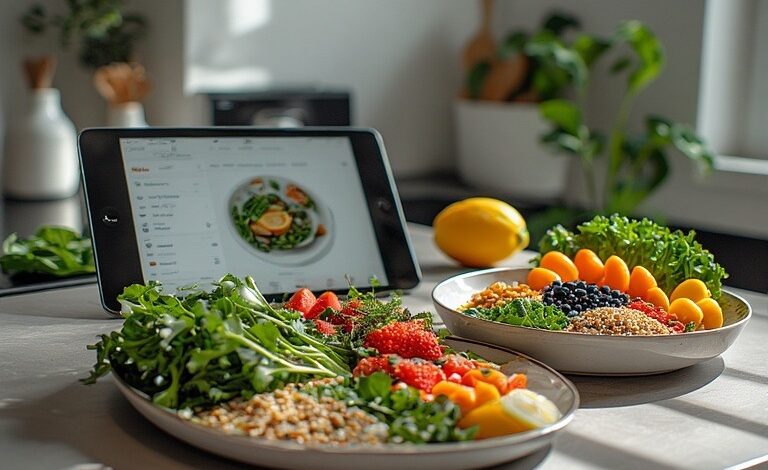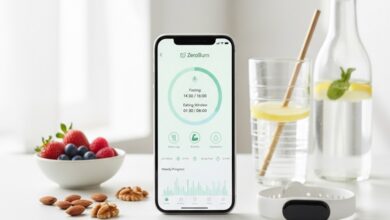Smart Eating: Innovative Diet Plans for a Healthier You

Healthy eating has always been a cornerstone of wellness, but in 2025, it’s no longer just about following strict diets or avoiding certain foods. Instead, people are shifting toward smart eating—a modern, innovative approach that blends nutrition science, technology, and lifestyle habits. The goal? A healthier, more balanced life without the stress of outdated dieting rules.
But how do smart diet plans compare to traditional ones? Let’s explore the evolution of eating habits and see why smart eating is quickly becoming the future of health.
🍽️ Traditional Diets: The Old Approach
For decades, weight management and health were tied to restrictive diet fads: low-carb, low-fat, or high-protein plans that promised quick results. These diets had a few common traits:
- Clear “do and don’t” food lists
- Calorie counting and portion restrictions
- Short-term results with long-term struggles
While some people saw success, most found traditional diets hard to sustain. They often caused nutrient gaps, food guilt, and yo-yo weight cycles. In short, traditional diets were more about rules than lifestyle.
💡 Smart Eating: The Modern Revolution
Smart eating flips the script. Instead of rigid restrictions, it focuses on flexibility, personalization, and balance. Backed by nutrition science and digital tools, smart diet plans encourage people to eat in a way that supports their bodies and lifestyles.
- AI-driven apps design meal plans based on individual goals
- DNA and microbiome testing identify what foods suit your body best
- Wearables and trackers monitor real-time data like hydration and metabolism
- Mindful eating habits help you reconnect with hunger and satisfaction cues
Compared to traditional diets, smart eating isn’t about short-term fixes. It’s about long-term sustainability and adaptable routines.
🥦 Personalization: One-Size-No-More
One of the biggest strengths of smart diet plans is personalization. Instead of generic “eat less sugar” advice, smart eating builds a plan tailored to you.
For example:
- If your DNA test shows lactose sensitivity, smart eating swaps dairy with plant-based alternatives.
- If your fitness tracker shows you burn more calories on active days, meal plans adjust accordingly.
- If you’re trying to build muscle, your smart plan emphasizes protein-rich meals aligned with workouts.
Traditional diets could never offer this level of individual detail. Smart eating makes nutrition personal, precise, and practical.
🌍 Smart Eating Meets Sustainability
Another major factor driving innovative diet plans is eco-consciousness. Smart eating looks beyond personal health and considers the planet’s well-being too.
- Plant-forward meals reduce carbon footprints.
- Lab-grown and plant-based proteins replace heavy meat consumption.
- Food waste reduction apps ensure smart shopping and cooking.
In comparison, traditional diets rarely considered sustainability—they were about quick results, not long-term impact. Today, food choices are smarter because they care for both body and planet.
🏋️♂️ Smart Eating + Fitness
In the past, diet and exercise were often treated separately. Now, smart eating connects them seamlessly.
- Fitness apps sync with diet trackers to adjust meals based on activity.
- Post-workout nutrition is tailored for recovery and energy.
- Smart supplements are recommended based on actual deficiencies, not generic advice.
Traditional dieting overlooked this synergy, but smart eating embraces it to build a holistic health system.
⚖️ Pros and Cons: Traditional vs. Smart Eating
Pros of Smart Eating:
✅ Highly personalized and flexible
✅ Supported by science and technology
✅ Encourages long-term healthy habits
✅ Promotes sustainability alongside wellness
Cons of Smart Eating:
❌ Requires access to technology (apps, trackers, tests)
❌ May feel overwhelming at first with too many options
❌ Costs can be higher than standard dieting
Pros of Traditional Diets:
✅ Easy to understand with simple rules
✅ Delivers fast short-term results
Cons of Traditional Diets:
❌ Rarely sustainable
❌ Can cause stress and food guilt
❌ Doesn’t adapt to personal needs
🌟 Final Review: Smarter Choices for a Healthier You
Smart eating represents the future of nutrition. While traditional diets were about restriction and short-term outcomes, smart diet plans embrace personalization, balance, and technology. They are not about eating less but about eating right—in ways that support your health, your lifestyle, and even the environment.
👉 Verdict: If traditional diets were like roadmaps with fixed routes, smart eating is like GPS—adaptive, flexible, and designed to guide you to your unique health destination. By choosing smarter paths, you’re not just dieting—you’re building a healthier, happier lifestyle.




